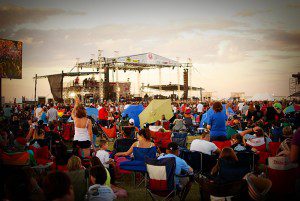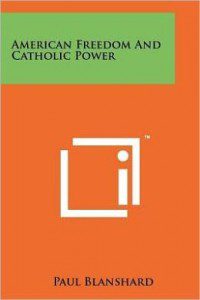In 2001, just one month before 9/11, 32,000 evangelical youth invaded Midland, Texas. Drawn to a Christian music festival called “Rock the Desert,” they clapped and danced to the rock anthems of Newsboys and Skillet. Festival organizers also highlighted a social and diplomatic crisis in Sudan, then a war zone with one of the worst global records of religious persecution and human rights violations perpetrated by the Sudanese government and Janjaweed Arab militias. Over the next several years, as the attendance exceeded 90,000, organizers built a mock slave cell and an authentic Sudanese village and handed out promotional material on the Sudan Peace Act.

Activism surged well beyond the festival grounds. Midland itself, the site of a recent evangelical revival in a city already saturated with churches, hosted the International Day of Prayer for the Persecuted Church, which directed considerable attention to Sudan. Ex-child slave Francis Bok frequently visited local churches, speaking of his desire “to free his people in bondage.” Midland activists mobilized in support of the Bachus Amendment to the proposed Sudan Peace Act that would deny access to American stock exchanges for oil companies doing business in Sudan. They lobbied President Bush and held a series of vigils at the State Department. Bok even traveled to the White House to speak with the president. For the first time since the nineteenth century, observers noted, an American president had met with a former slave. But it was Midland, according to political scientist Allen Hertzke, that became “ground-zero in the grass roots campaign on Sudan … and a strategic player in high-level negotiations leading toward a peace treaty.” This activism, documented by Hertzke in Freeing God’s Children: The Unlikely Alliance for Global Human Rights, extended the evangelical efforts that had helped pass the landmark International Religious Freedom Act of 1998.
 These actions on behalf of Sudanese human rights contrasted significantly with the lower levels of evangelical political activism in the mid-twentieth century. First, the human rights work indicated a significant presence in the nation’s capital. Evangelical efforts kept the issue alive at the moment when 9/11 could have swept Sudan off the agenda. “Prayer and hymns,” notes Hertzke, “were matched with strategic analysis and pivotal timing.” A receptive, just-inaugurated president, himself an evangelical from Midland, greased the political gears. As the new century dawned, it was clear that evangelical politics had matured far beyond its parochial efforts of the mid-twentieth century. Second, the issues involved a social dimension. Midland evangelicals demonstrated attention to the economic and political roots of injustice in ways that the previous generation had not in its focus on personal salvation and evangelism. Third, the activism marked a new ecumenical spirit. At mid-century Christianity Today and other significant books contrasted “Catholic power” with “American freedom.” But fifty years later, evangelicals in Midland and Washington, D.C., were collaborating with Catholics, Jews, and other religious actors. This campaign for peace and human rights in Sudan pointed to growing ecumenical, promotional, and electoral sensibilities within evangelicalism.
These actions on behalf of Sudanese human rights contrasted significantly with the lower levels of evangelical political activism in the mid-twentieth century. First, the human rights work indicated a significant presence in the nation’s capital. Evangelical efforts kept the issue alive at the moment when 9/11 could have swept Sudan off the agenda. “Prayer and hymns,” notes Hertzke, “were matched with strategic analysis and pivotal timing.” A receptive, just-inaugurated president, himself an evangelical from Midland, greased the political gears. As the new century dawned, it was clear that evangelical politics had matured far beyond its parochial efforts of the mid-twentieth century. Second, the issues involved a social dimension. Midland evangelicals demonstrated attention to the economic and political roots of injustice in ways that the previous generation had not in its focus on personal salvation and evangelism. Third, the activism marked a new ecumenical spirit. At mid-century Christianity Today and other significant books contrasted “Catholic power” with “American freedom.” But fifty years later, evangelicals in Midland and Washington, D.C., were collaborating with Catholics, Jews, and other religious actors. This campaign for peace and human rights in Sudan pointed to growing ecumenical, promotional, and electoral sensibilities within evangelicalism.












